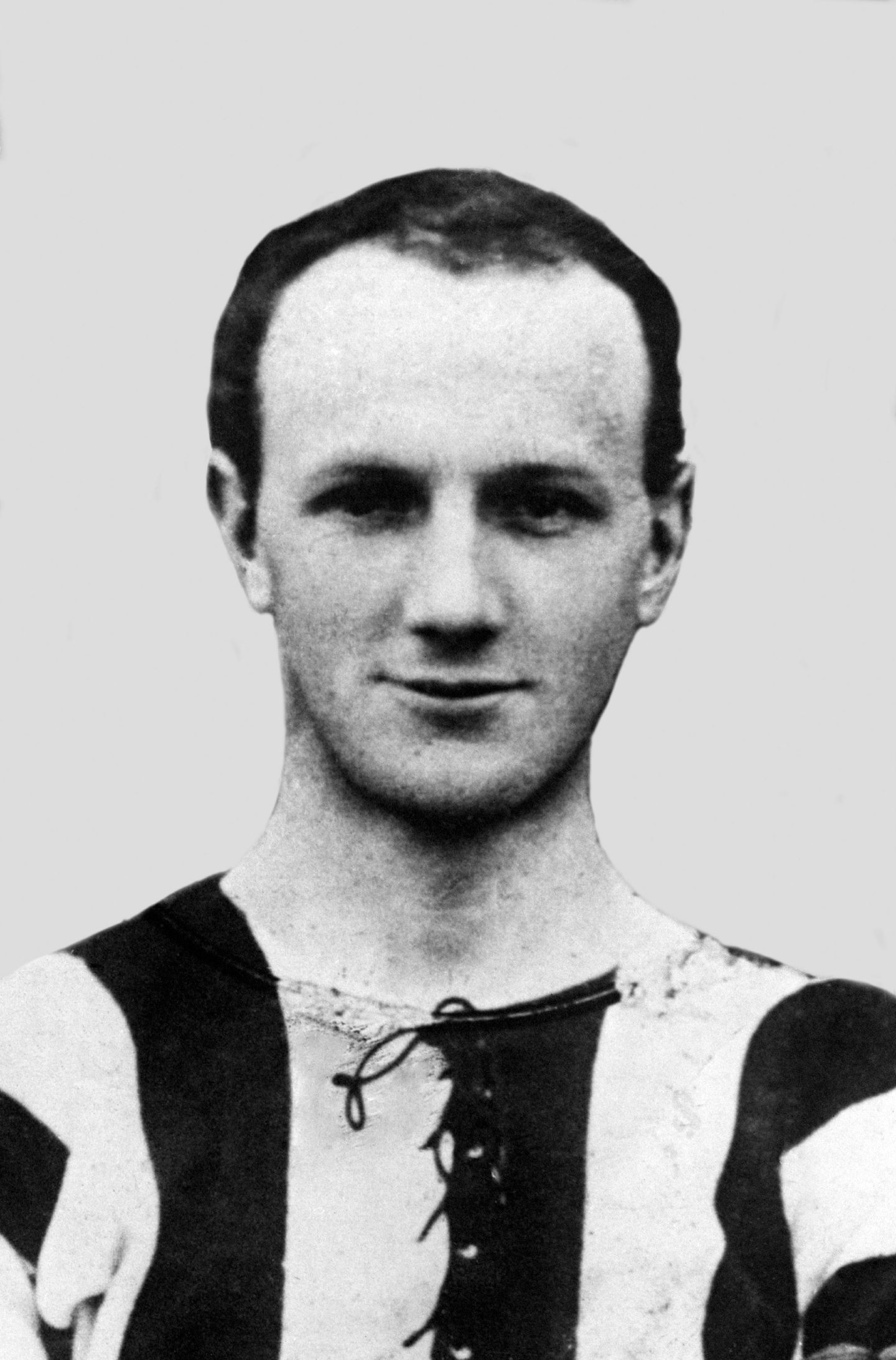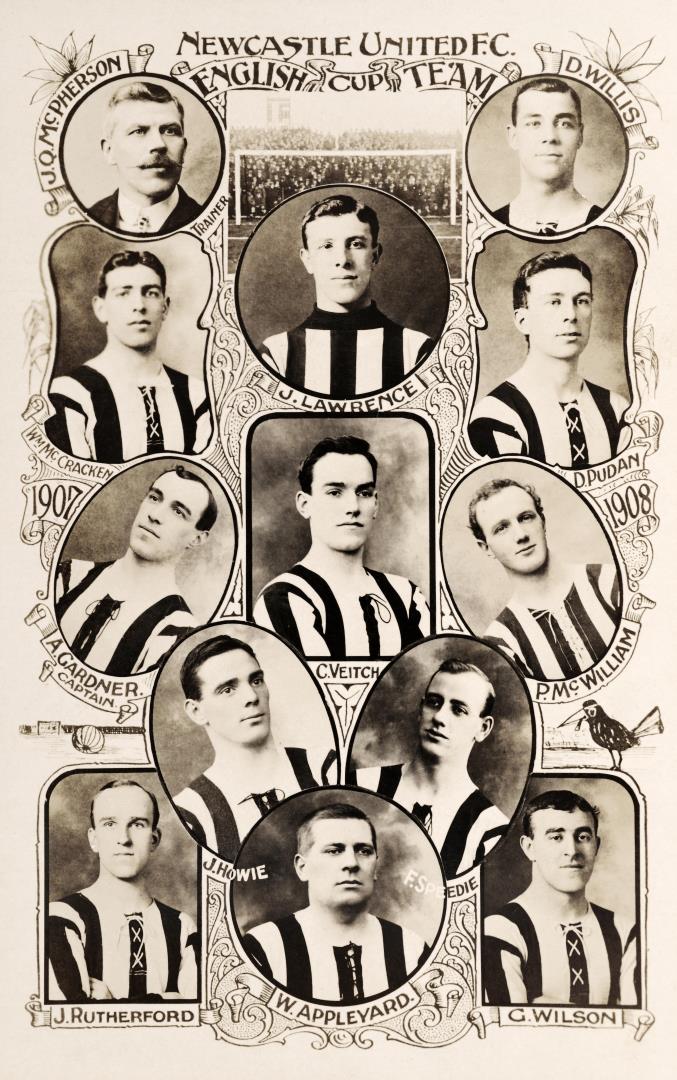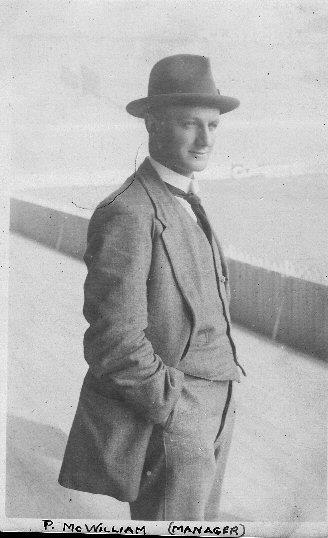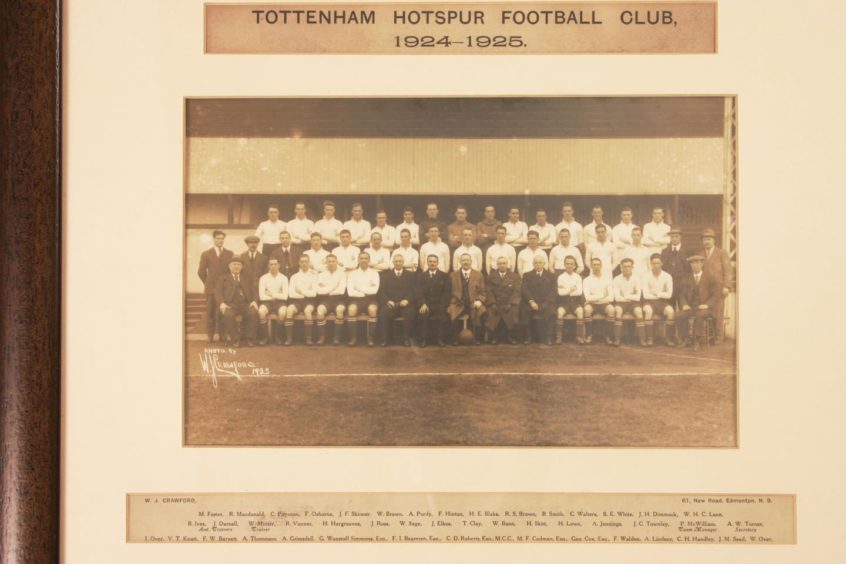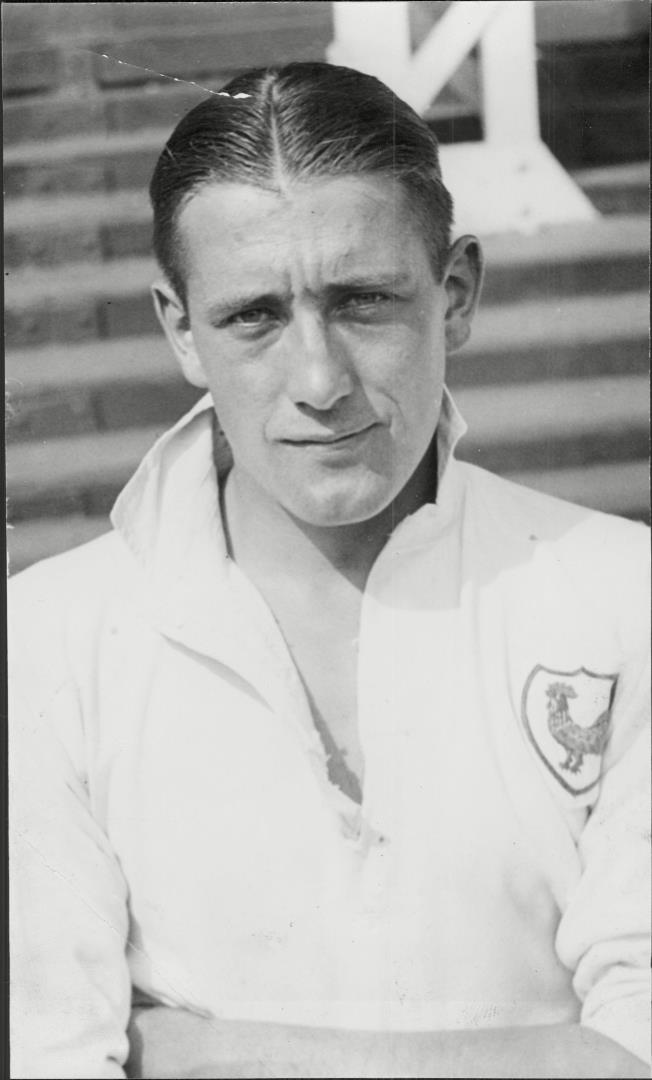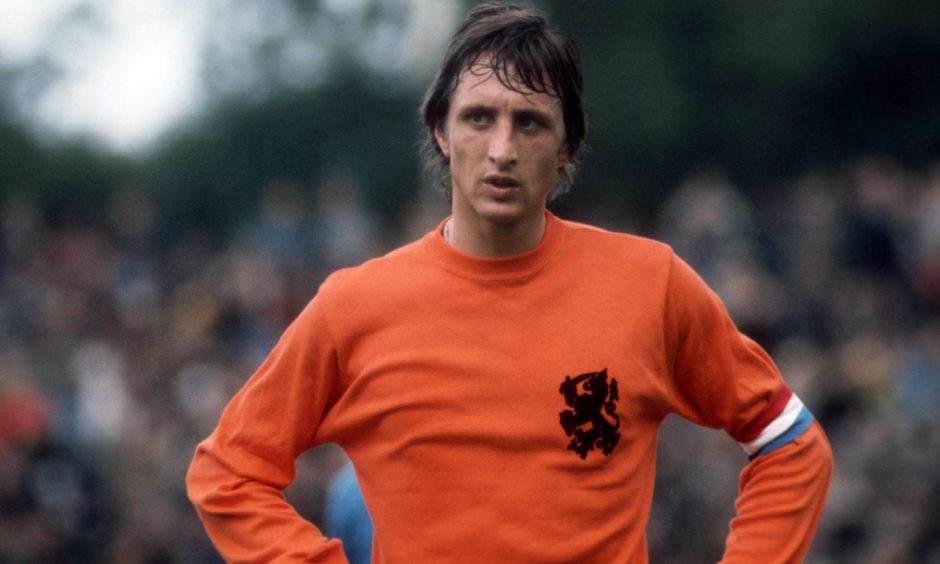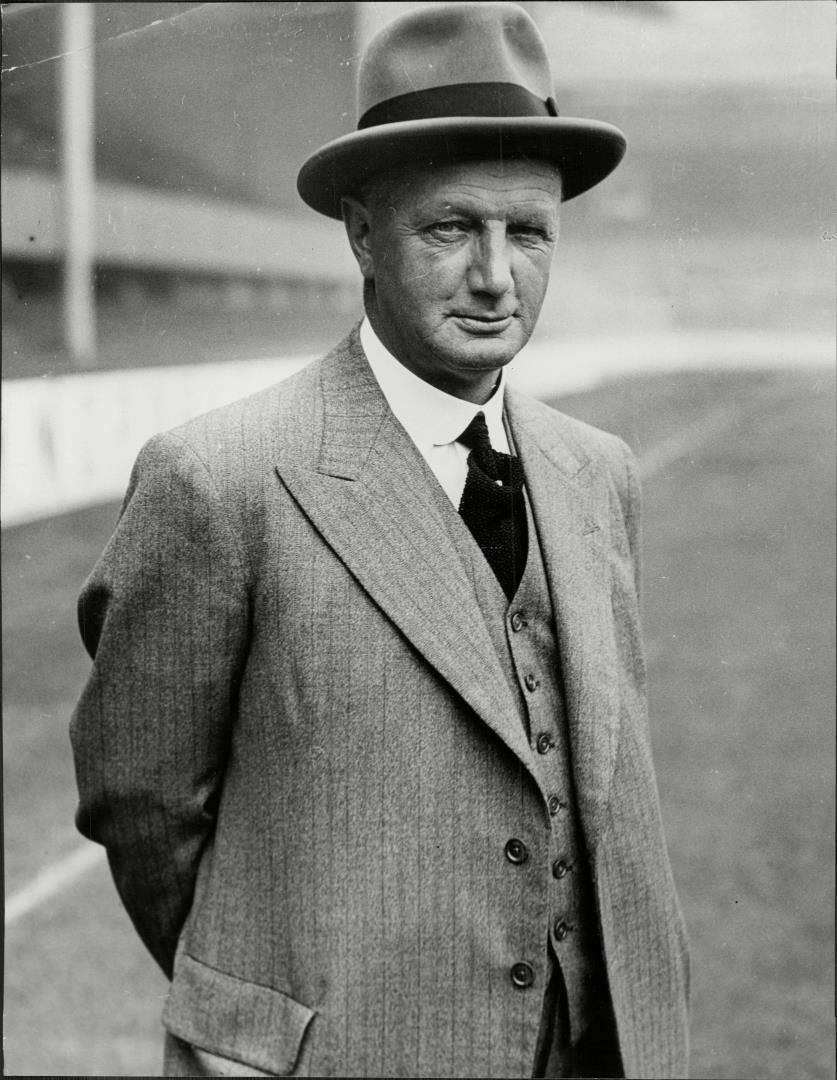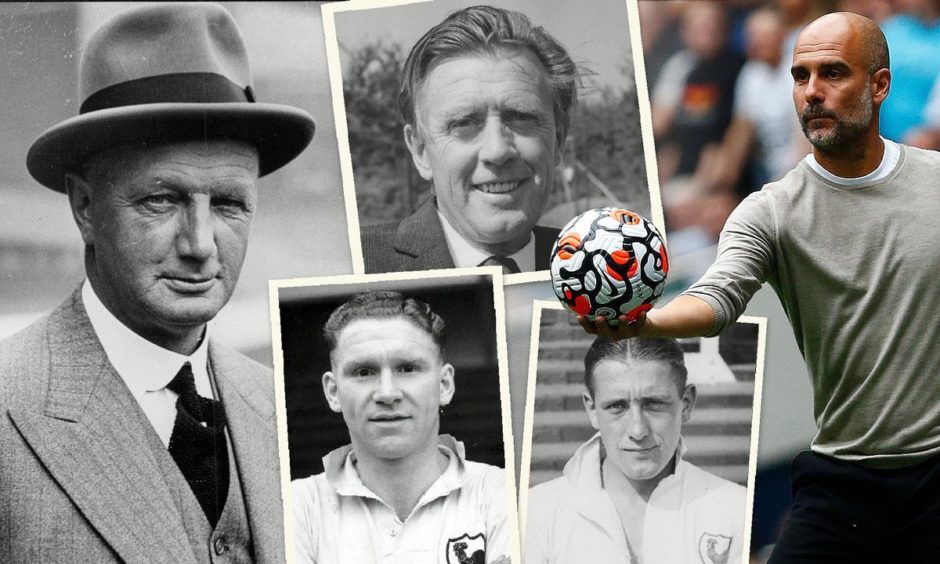
He was the Inverness lad known to the football world as ‘Peter the Great’ who went on to create legends during his time with Tottenham Hotspur.
He coached players who went on to become managerial greats – Vic Buckingham, Arthur Rowe and Bill Nicholson – and his legacy is alive in the legendary Pep Guardiola.
Who was this Invernessian who got to the top of the footballing tree with a legacy still reverberating in the game today and yet is almost forgotten?
Peter McWilliam was born in 1878 in Inveravon, Banffshire, to parents Peter and Jane.
They were both from Aberdeenshire villages near Huntly, he from Gartly, she from Forgue, and had settled in Inverness to improve their fortunes.
Peter Snr was a grocer’s porter, and they settled initially at 23 Argyle Street with a growing family – Peter Jnr being the youngest of four and the only boy.
Tragedy struck with the death of Jane, when Peter was seven.
The family then moved to 13 Argyle Street as more McWilliams moved in, Peter’s brother John, also a widower, and his family coming to live next door.
Early career
This was possibly crucial in young Peter’s footballing development, as he now had male cousins to kick-about with and develop the skills which would make him into a dazzling half-back.
He started his playing career at junior club Heatherley in 1898, joining Inverness Thistle in 1899.
He stayed with them for a season before joining Albion Rovers in 1900.
The following year he rejoined Inverness Thistle, but his next step was the big one.
Heading south to Newcastle United
McWilliam played for Newcastle from 1902 for nine years to great success, playing alongside fellow Scot, Robert Smith McColl.
It was McColl (who also founded the newsagents R S McColl, now McColl’s) who first introduced McWilliam to a style of play that would reverberate in the home and European game to this day – described as “artistic play, combining team-work and quick, short passing.”
He was a real players’ manager with a simple philosophy on how to do his job.”
Spurs historian John Fennelly
Injury cut McWilliam’s playing career short, after 241 games for Newcastle in which he scored 12 goals; also winning eight caps and earning the captaincy for Scotland.
Between 1905 and 1910, the club had won three League titles and reached four FA cup finals, winning one.
McWilliam was an FA cup finalist in 1905, 1906 and 1908 with Newcastle losing each time to Aston Villa, Everton and Wolves, respectively.
But in 1910, he finally secured that winner’s medal as The Magpies beat Barnsley in a replay.
Coming to terms with the end of his playing career must have been hard, but in what turned out to be good timing for McWilliam, in November 1912, Tottenham Hotspur shareholders were up in arms.
Their previous manager, Fred Kirkham, had resigned, and the club’s directors had decided not to replace him, taking on the responsibility for scouting and signing players and for team selection themselves – with catastrophic results.
Spurs had been promoted to the Football League at the first time of asking, but their first 13 games had been unimpressive with three draws and 10 defeats.
The directors agreed that a full-time manager was needed, and selected Peter McWilliam.
He was seen as one of the great half-backs of the game, a former Scotland captain and the very heartbeat of Newcastle United and their impressive track record.
By Boxing Day 1912, McWilliam was in post, setting about building a team based on his own style of attacking football.
He quickly made his mark, with the team avoiding relegation in 1913/14, although there was a disappointing slump toward the end of the season, with only one victory in the last nine games.
World War One took its toll on his players and Spurs ended up bottom of the table in 1914-15.
But McWilliam’s talent radar went full throttle during the war years as he planned for the future.
By the time things were getting back to normal he had assembled a squad of players way too good for the Second Division.
According to club historian John Fennelly, they almost walked to the title in 1920 with a record 70 points, six clear of Huddersfield Town.
Mr Fennelly says McWilliam possessed all the attributes a great manager needed, with an uncanny ability to spot talent others had not seen.
“He didn’t coach them, he told them, ‘you’re good enough, go and play’.
“He was a real players’ manager with a simple philosophy on how to do his job.
“He didn’t waste time and effort coaching players, telling them what to do or making them play to a system, he just surrounded himself with quality footballers and let them get on with playing the game.
“If they were good enough to be in the team they didn’t need instructions from him.”
McWilliam wasn’t averse to undercover tactics to get the men he wanted, Mr Fennelly recounts.
One story surrounds the story of signing Jimmy Seed from Mid-Rhondda.
“When word leaked out Spurs were interested in the Mid-Rhondda inside-forward, the local supporters threated to lynch McWilliam if he went within a mile of their man.
“McWilliam wore glasses and a false beard to watch Seed, then signed him after the game before anyone realised he had even been in the vicinity.”
McWilliam’s shrewdness extended to a long-term vision for the club.
He was responsible for Spurs adopting Northfleet United in Kent as its nursery club in 1923, resulting in numerous players learning the Tottenham way, ultimately saving Spurs a fortune.
The notoriously thrifty directors appreciated this. They consistently refused big money for top players, meaning McWilliam struggled to keep Spurs at the top.
The directors’ shallow pockets ended up driving McWilliam away in December 1926, when Middlesbrough tried to poach him with an offer of £1,500 a year, against his current £850 salary.
McWilliam wanted to stay with Spurs, and asked for an extra £150 a year but the directors refused so, in January 1927, McWilliam tendered his resignation.
Mr Fennelly said: “He gave three months’ notice, more than enough time for the board to change their mind, but it was not to be.
“He left at the end of February 1927.”
The directors must have kicked themselves as McWilliam took Middlesbrough into the First Division twice and kept them there, while Spurs struggled.
McWilliam stayed with Boro until his dismissal in 1934.
He turned down an offer to succeed Herbert Chapman as Arsenal manager, but did join the club as chief scout.
In 1935, an opportunity arose for him to take over Spurs again, but Arsenal refused to release him from his contract.
Three years later McWilliam rejoined Spurs, but had to contend once again with the attrition of war.
But the club reaped his eye for talent as he signed players who would have a profound effect on Spurs’ fortunes after the war including Vic Buckingham, Arthur Rowe and Bill Nicholson, who all went on to become managerial greats.
Rowe was the first man to win a First Division championship with Tottenham before Nicholson took on McWilliam and Rowe’s philosophy to even greater effect, becoming the club’s greatest-ever manager, winning eight major trophies at White Hart Lane.
Meanwhile, Buckingham took McWilliam’s slick passing and movement-based tactics to the next level and is considered one of the founders of total football.
He went on to manage Ajax and Barcelona, and handed a young Johan Cruyff his debut.
Cruyff would go on to become the epitome of total football during his career.
The philosophy of Manchester City manager Pep Guardiola – regarded by many as the world’s greatest coach – was also founded on the total football methodology he had practiced as a player under Cruyff at Barcelona in the 90s.
Meanwhile, by 1942 Peter McWilliam and his wife Florence were suffering ill-health and retired to Florence’s home town of Redcar, Yorkshire.
The two had married in 1905, during McWilliam’s time at Newcastle United.
They had four children.
McWilliam died on October 1, 1951 in Redcar and is buried in Kirkleatham cemetery. Florence survived until 1970.
In addition he was a master of tactics, and probably no famous half-back had relied so much on science pure and simple.”
The Sheffield Daily Telegraph
It’s hard to overstate the shrewd Invernessian’s impact on the game of football.
He won the FA Cup as a player with Newcastle United, and then as a manager with Spurs in 1921, a feat very few have emulated.
Analysing the secret of Spurs early success while McWilliam was manager, The Sheffield Daily Telegraph wrote: “Now in his day Peter McWilliam was the greatest left-half of the game.
“In addition he was a master of tactics, and probably no famous half-back had relied so much on science pure and simple.
“We are told McWilliam is taking his responsibilities as team manager of Tottenham very seriously, a fact which does not surprise us, having regard to the manner in which he used to play, and that so far as is humanly possibly he intends to make Tottenham players tacticians after his own stamp.
“‘Tis said that he is coaching them in couples, and one experienced critic declared that on Saturday at Chelsea he could see evidence of the master mind in the way the Tottenham players went about their work.
“Every man, it would appear, knew his place, and took care to be occupying it at the right moment, and if that kind of thing continues then we may well expect Tottenham to be in the running for any of the honours which are going.”
You might enjoy:
Scotland’s Pele: Andrew Watson emerged from slavery to become a black football icon
